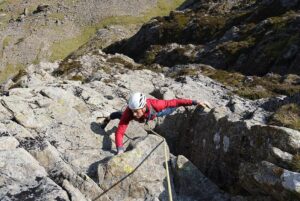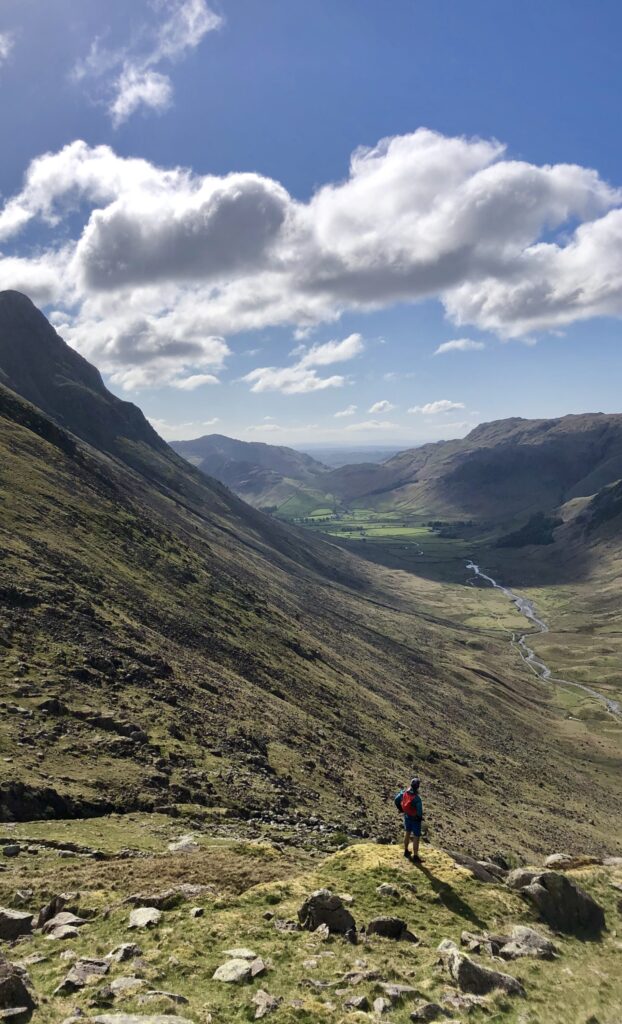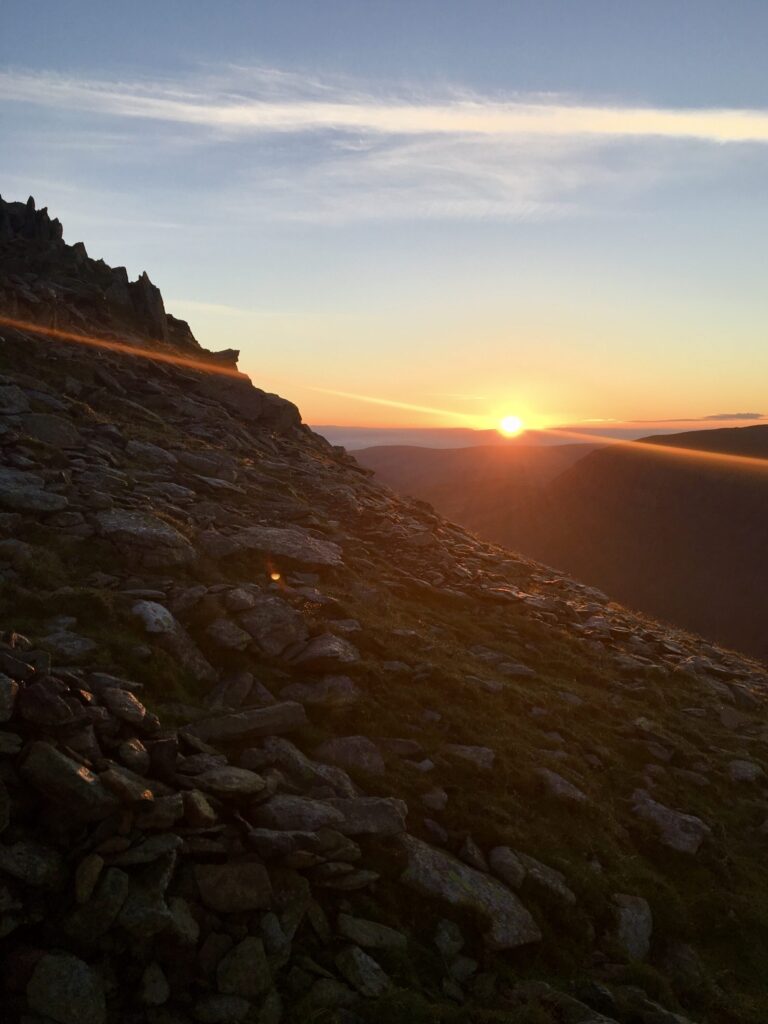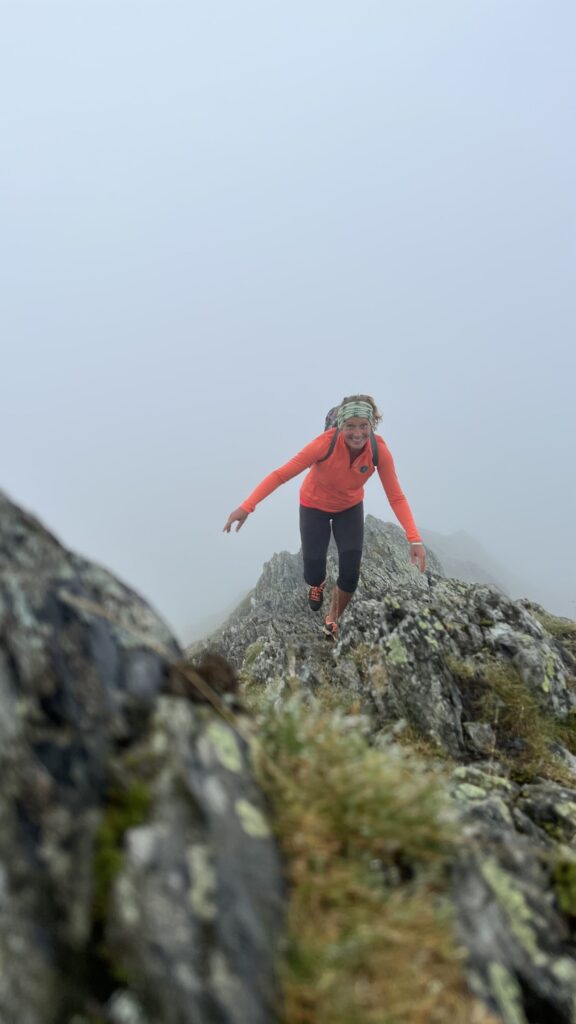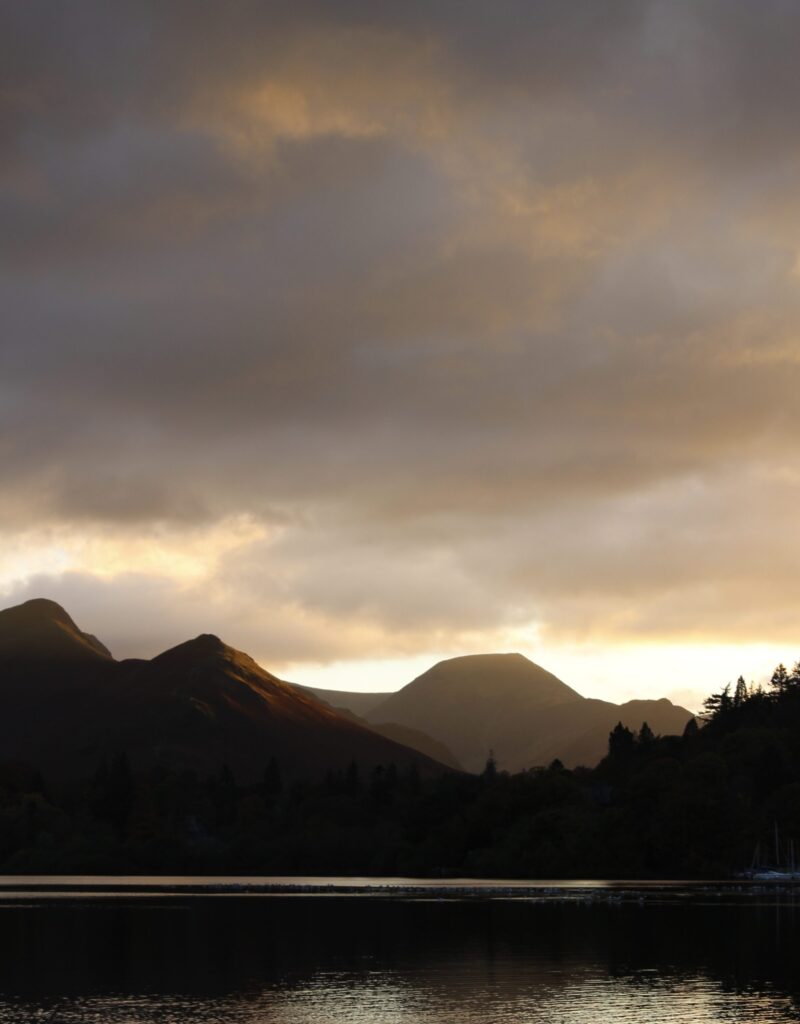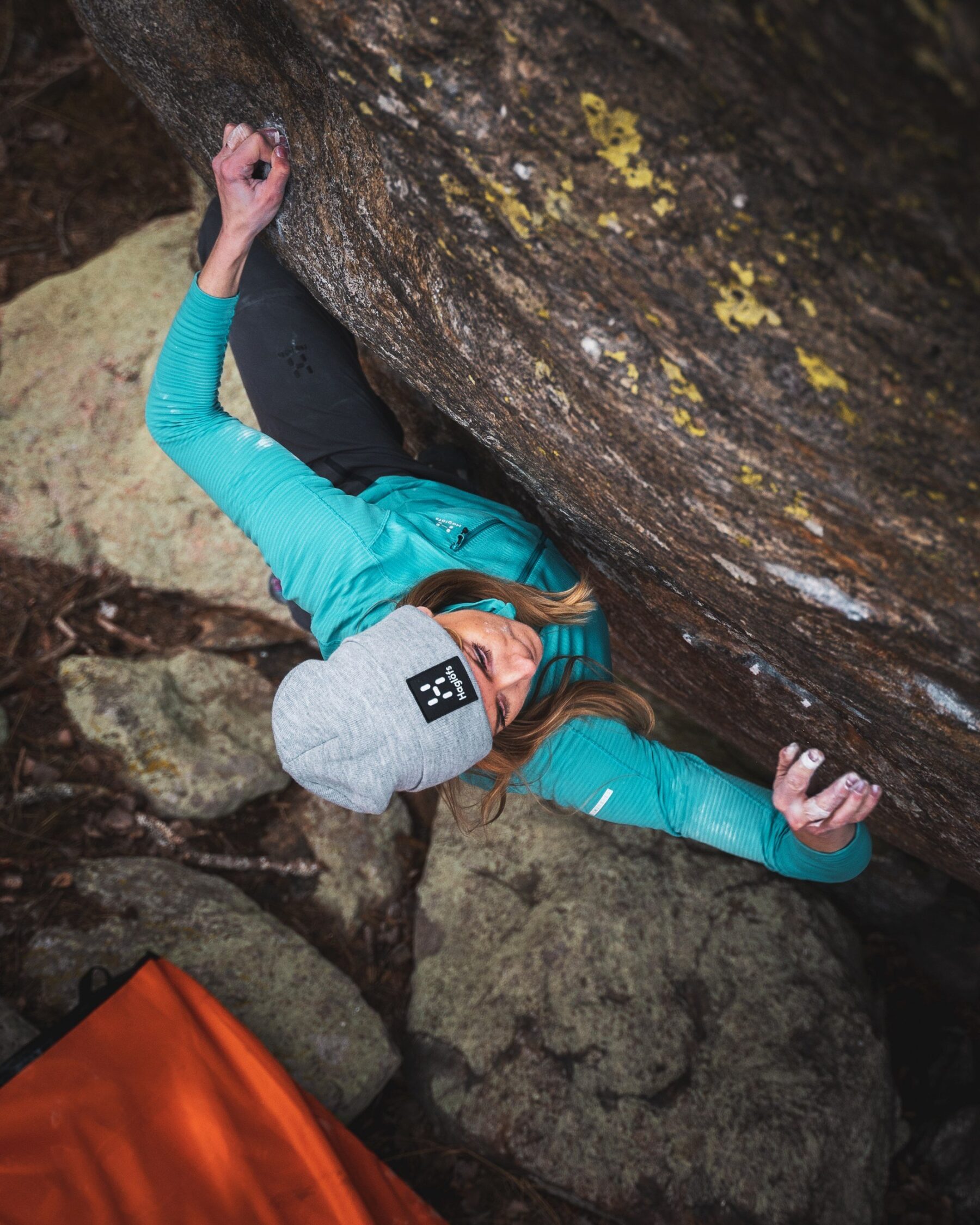Making lists of outdoor objectives may seem somewhat at odds with the freedom of adventure, but for Mark Bullock it’s been a medium through which to broaden his exploration.
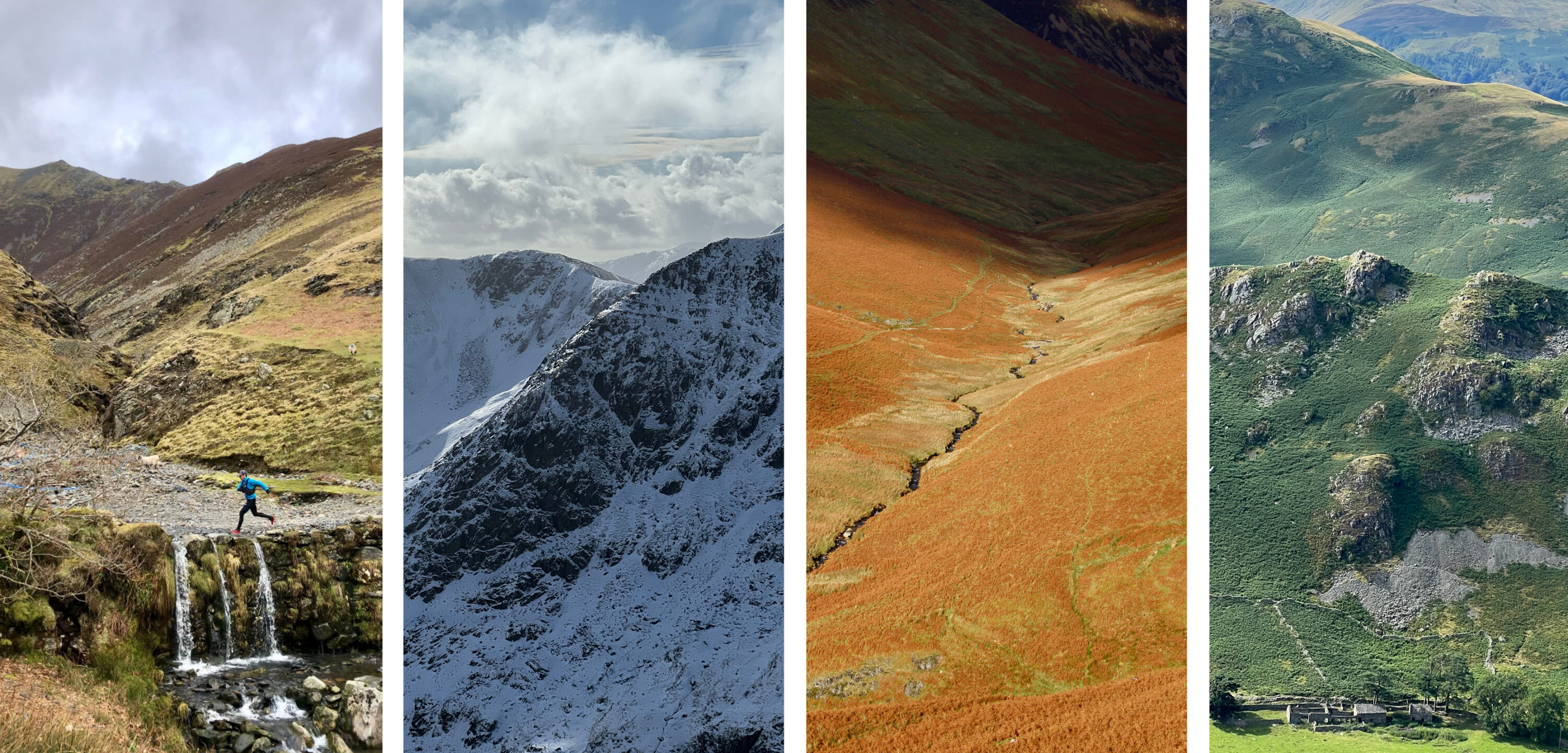
Left to right: Neil Badavi coming off Hall’s Fell Ridge (Blencathra)after Bob Graham Leg1 ; View towards Nethermost Pike, from Striding Edge;Sail Beck in autumn tones, Buttermere; Looking across Martindale, from Steel Knotts.
Hi, my name is Mark, and I’m a list-a-holic. But what’s more – before you scoff – I think you might be too.
Allow me to elaborate. If you’re passionate about spending time outside in the hills, it’s almost inevitable that you’ll have some sort of a list, however arbitrary, a bucket list or just a mentally-noted intention. There’s a good chance you have at least one mountain you really want to scramble up, some dream routes you’d love to climb, an idyllic tarn you dream of swimming in, or a classic horseshoe you’d like to run around.
For many of us, moments in the outdoors can be something of an epiphany. For those who discover it later in life, the newfound passion can feel so powerful and life-changing, that the desire to absorb and immerse ourselves in the hills can feel all-encompassing.
That was the case for me at least. As if making up for lost time, I devoured outdoor magazines and literature with a ravenous curiosity. I discovered a new vernacular and terminology. I kept stumbling into phrases like Munro bagging and couldn’t decipher the code. This new world of gaiters, Rømer scales and map cases seemed somewhat nerdy to me, but I couldn’t resist the desire to clamber my way up as many mountains as my knees would allow.
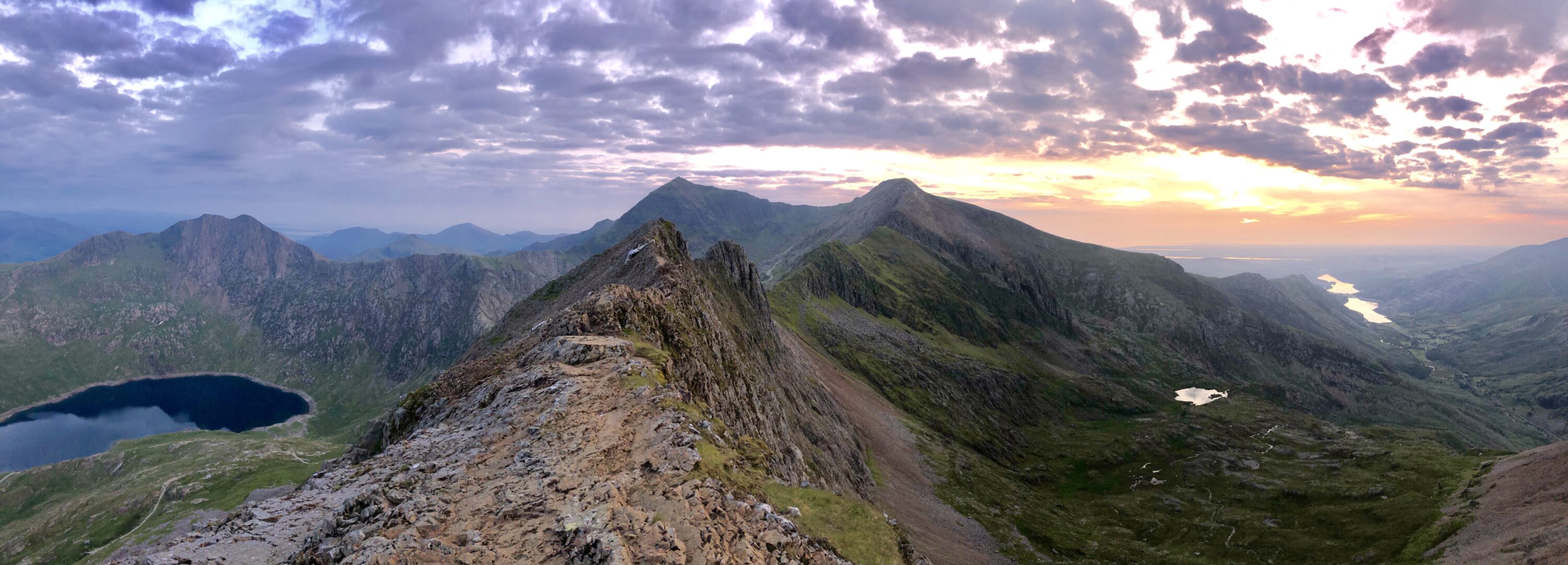
Snowdonia’s notorious ridge basking at dusk. In Welsh, Crib Goch translates as ‘Red Ridge’.
I also knew as an enthusiastic newcomer, that there were just so many hills I really wanted to climb ASAFP
There was soon a list of mountains. I was told I had to ‘do’ Crib Goch, that I really needed to ‘do’ Tryfan.
How absurd that felt at the time, this concept of consuming a mountain, and moving it from your in-tray to your done pile; it felt so disposable. I suppose it’s a notion more aligned with today’s modern attention spans, but I didn’t want to ‘do’, or even have ‘done’ Crib Goch. I wanted to experience it, not for a tick, but for the views, the thrill of the position, and hopefully as part of a lush afternoon around the horseshoe, maybe creating some memories with a dear friend.
But equally, I also knew as an enthusiastic newcomer, that there were just so many hills I really wanted to climb ASAFP. Certainly the concept that there were just so many exciting mountains out there, from that perspective I could at least in part understand why you might have ‘done’ any given hill, and moved on to focus your energies on other objectives. I certainly did feel like I needed to go to Skye (rather for instance, than go to Snowdonia yet again). And Torridon, Mont Blanc, and many, many others. So picking a good day, and a good route up, came to mean really savouring a mountain before turning attention elsewhere.
The more I read, the longer the list grew. The outdoors, it seemed, was absolutely awash with lists. Welsh 3000ers, Seven Summits, National Trails, County Tops, Dodds and Corbetts, Munros and Marilyns. Reader-voted top 100s and top 50s broken down into specific geographical regions. There was a lot to digest.
Back in those early B.C. years (before climbing), I allowed myself to go off on tangents, trying out the different mountaineering genres for size. Winter mountaineering, fell running, bouldering, trad climbing, ice climbing, these disciplines all had their own must dos, whether it be a question of aesthetics, challenge or even notoriety. So the lists grew longer, and more varied.
As the passion settled though and I became more familiar with my own personal tastes and techniques in the mountains, certain lists came to the fore, while others were marginalised. Once I’d found out what it was, I knew I wasn’t a Munro Bagger – that I thought I would save for when my body had had enough of climbing (yes, that’s right, organising one’s mountaineering career around lists). But I could be a Hard Rock ticker, that sounded sexy and seductive and I pored over the pages of Ken Wilson’s famous climbing tomes. Equally, I would like, while the flame burned brightly, to ‘do’ some of the very classical or iconic adventures before I hung up my mountaineering boots: I’d like to scale the Matterhorn, traverse the Black Cuillin Ridge, perhaps climb Half Dome.
There was a problem though. Each genre possessed its own lists, and in opening up a new list, or becoming aware of completing a substantial chunk of any given list, I’d acquire the admittedly OCD, anally retentive desire to finish it. I’d have to prioritise my focus.
I’ll give you an example. Some years ago I ticked one off the bucket list by completing a Bob Graham Round. This entails travelling by foot over 42 prescribed Lakeland peaks, starting and finishing at the Moot Hall in Keswick, in under 24 hours. If you do this with witnesses you earn the right to join The Bob Graham Club and you get a certificate (yes, I am a grown up and my 25m breast-stroke certificate from St. Gregory’s is no longer on my wall, but I remain proud of my BG certificate and Club membership!).
Completing that Round had taken months of effort, and not just the training – but with multiple weekend trips to the Lakes for recce runs and gaining an intimate familiarity with the route. By the time I finished, I had climbed the same 42 fells five or six times each. It almost goes without saying that there are dozens of other beautiful hills in the Lakes, and so on subsequent trips I thought I should experience some of the others. I was very definitely done with Skiddaw. Six times I’d expended the energy to climb it from Keswick. That relentless inclined rubble-strewn treadmill was pretty uninspiring and I begrudged the idea of doing it again, when I could be spending my energies on other mountains). So I started running little loops of Wainwrights.
The Wainwright Pictorial Guides to The Lakeland Fells, are a beautiful set of pocket books lovingly hand illustrated and written by Alfred Wainwright. Unlike Munros (Scottish mountains over 3000 feet catalogued by Sir Hugh Munro) the Wainwright list is definitive. Modern mapping technology has changed the Munro list several times over the years and people have quibbled over the amount of elevation, declination or separation between peaks – for example, what actually constitutes a neighbouring peak being regarded as a different mountain? With Wainwright’s books, the hills are either featured, or they’re not. So his 214 chosen fells felt like a nice goal as part of ongoing loving pilgrimages to the Lakes. A way to see new views, areas, have fresh adventures, to literally broaden my horizons, and to carry on enjoying running in the home of fell running.
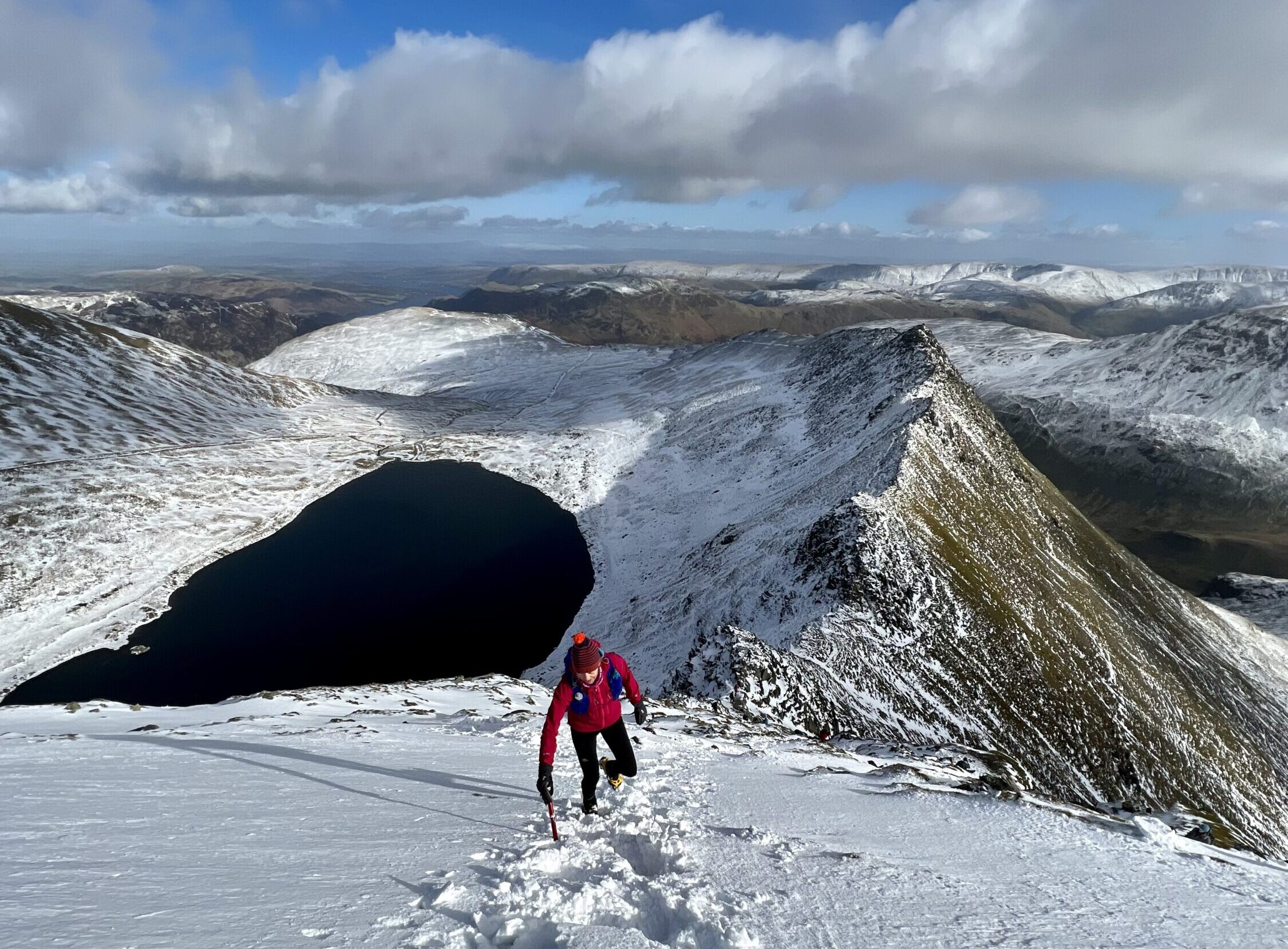
Libby Peter exiting Striding Edge
But on two occasions my quest was forced into question. The first, was when I’d taken a non-climbing friend up the photogenic Pinnacle Ridge on St. Sunday Crag. At the top of the jagged toothed ridge after packing away the rope, we made our way along the shoulder of the mountain where the ridge meets the whaleback top of the fell, and he turned left to walk back to the car, as I turned right to go to the top of the hill. A philosophical debate ensued.
‘Where are you going?’
‘To the top of the hill.’
‘What for?’
‘To go to the top of the mountain.’
‘Come on mate, you’ve climbed your ridge, let’s get to the pub.’
‘But we’re not at the top of the hill.’
‘Mate, it’s right there. 200 metres walk away. Do you need to prove something to yourself? An ego thing? All that walking over there to that pile of stones and then walking back here to me is going to achieve is that we’ll be having our shandy 10 minutes later. Come on: Pub.’
‘But…’
‘Mate it’s not Everest, you don’t need to stand on the tippy-top! Look, I’ll give you this one, okay?’
‘But I’m not at the top, and if we take your logic then I may as well say I’ve climbed all the Lake District fells because they’re all just walks and of course I know I can walk them, but I haven’t, so I’m going to.’
He stood obstinately while I dropped my bag and jogged to the top of St. Sunday Crag, and then back to him. I shouldered my pack for the walk down.
‘Happy now? You’ve lost it,’ he said. ‘I thought it was supposed to be about adventures with friends. It’s getting a bit… puerile isn’t it?’
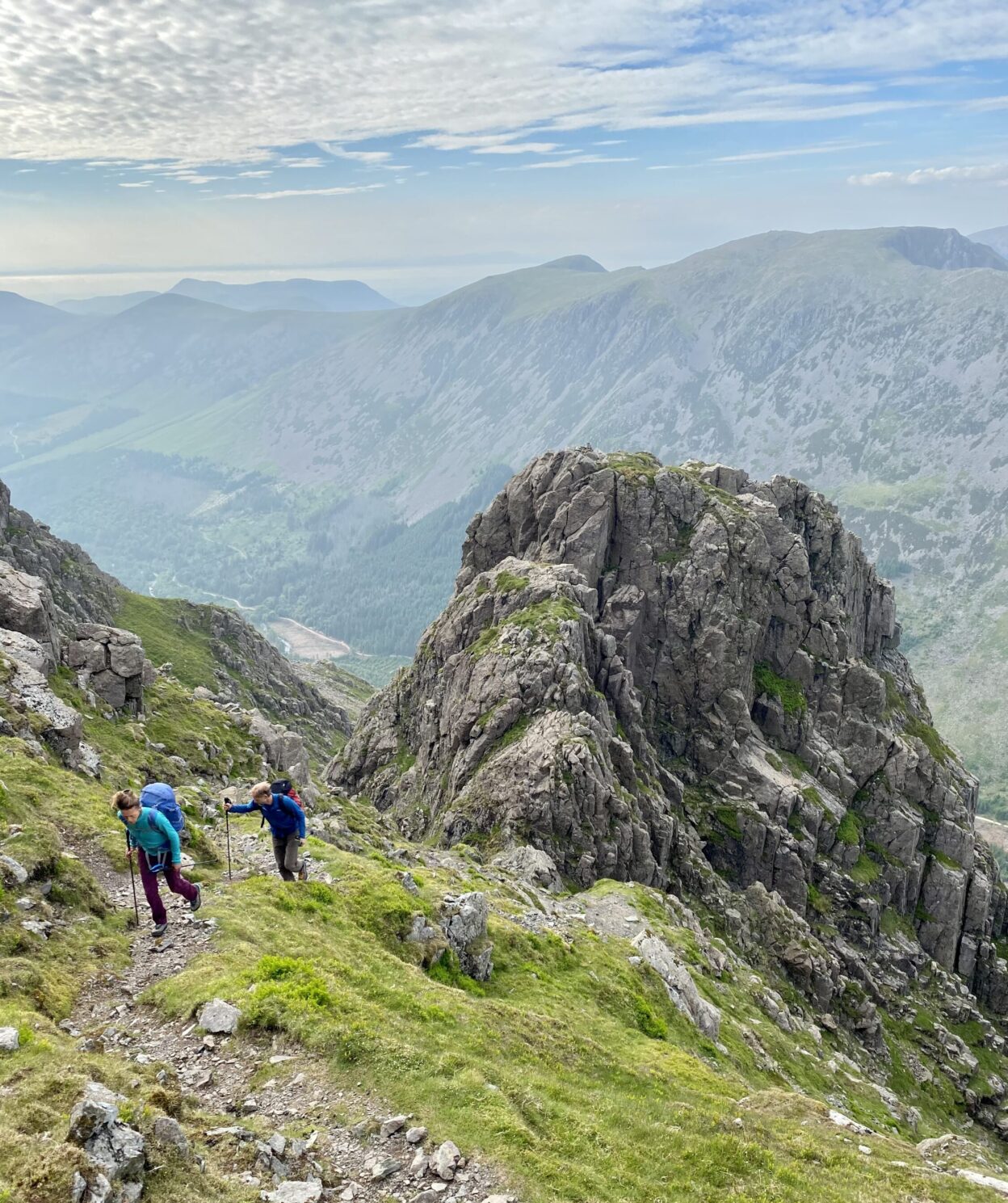
Libby and Martyn walking off Pillar, home to two Classic Rock routes.
The more I read, the longer the list grew. The outdoors it seemed, was absolutely awash with lists
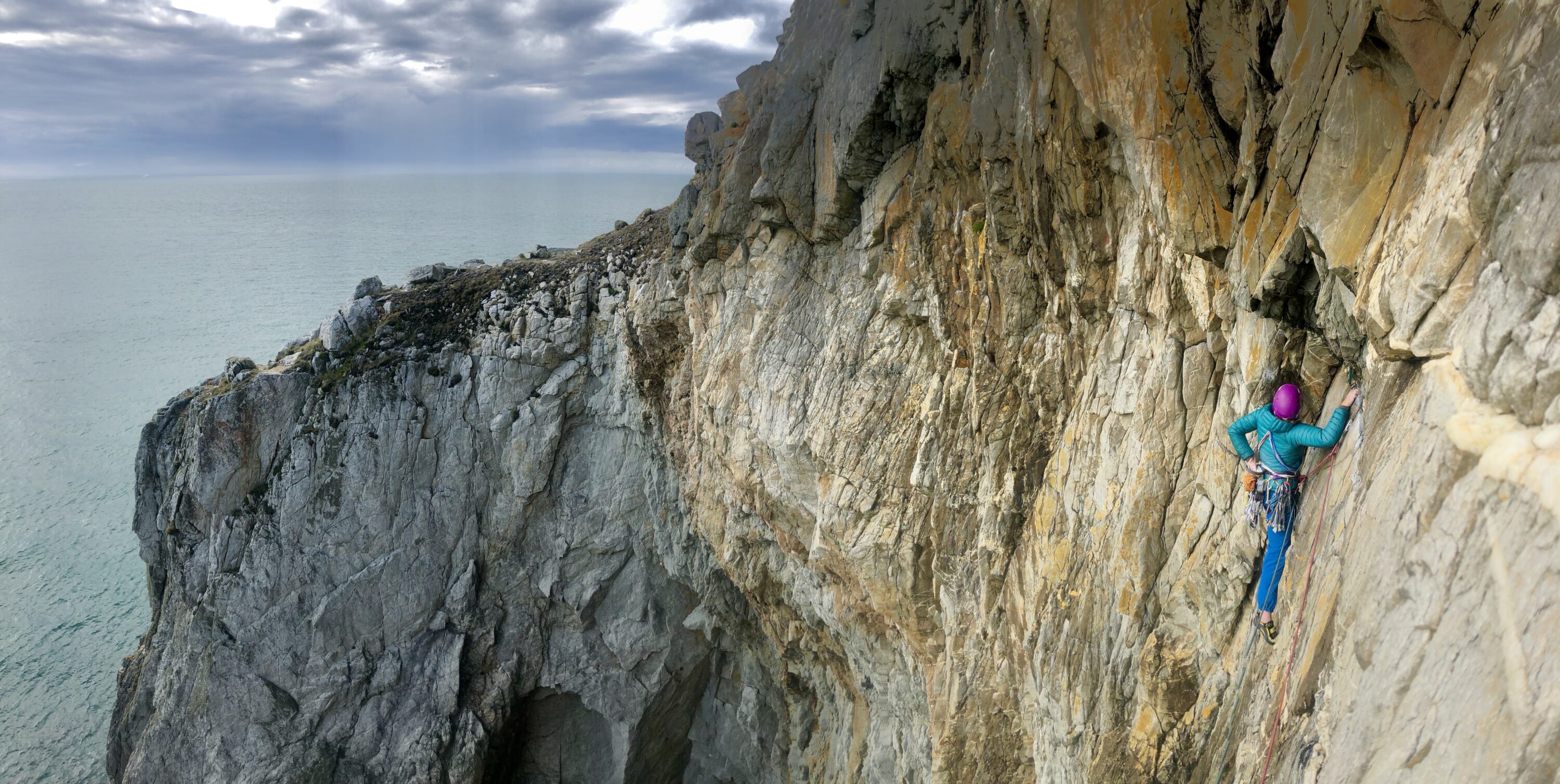
Zoe Wood on Hard Rock tick A Dream of White Horses.
I’m still captivated by the way the wind plays with a waterfall, or how the clouds flow over a connecting ridge
A year later with a less contentious friend, I was walking a circuit of Wainwrights near Blencathra. It was a very dreich day, spent entirely in the clag from Sharp Edge until we descended via Doddick fell. It wasn’t raining but the air was just wet. Like walking through skimmed milk. Bannerdale Crags was a very nondescript summit. We ate a sandwich and then, hastened by the chill, set off for Bowscale Fell. When we got there, my less contentious friend did still, with a mischievous twinkle in her eye, query the slight absurdity of our afternoon.
‘So let me get this straight: We’ve just walked from one point to another, with no noticeable change to the view, or terrain underfoot, purely to satisfy your desire to have climbed both hills. An out-and-back walk that was completely unremarkable – not that you weren’t lovely company the entire way – but that served no obvious purpose aside from you being stood on one grid reference, and then, on another, with all the varied views of the inside of a ping-pong ball. And now, mission accomplished, we can go down? It’s… well it’s a little odd. Isn’t it?’ I had to concede, she had a point. The lack of view certainly added to the hollow sensation of merely being in a slightly different place on the map.
As I write, I’ve done 189/214 Wainwrights, 41/282 Munros, 10/61 Hard Rock routes (from Ken Wilson’s 1974 book Hard Rock), 45/83 Classic Rock routes (from the 1978 book Classic Rock from the same author), 29/50 routes from the West Country Rockfax Top 50, 15/82 Alpine 4000m Peaks and still have all six of Starlight and Storm (the great north faces of the Alps) to do. I know all this because [cringe] I have an app which I use to record and track my progress. I’m subscribed to 7 ticklists on my UKC Logbook, including the esoteric Parois de Legend (120 of the nicest multi-pitch climbs in the world) – which is certainly not getting completed any time soon.
I’m ashamed to say I’ve forgotten the names of some of the hills I’ve climbed, which wasn’t always the case. For many years I was great at identifying mountains from photos, even from lesser known viewpoints. But while maxing out the memory is a price I’m prepared to pay, it’s also the case that there’s a point where the desire for more does perhaps in the end dilute the experience.
But despite having more lists than I can reasonably keep track of, let alone hope to complete, I can honestly say I’m immensely thankful for the new places those lists have taken me, whether that be days out with various lovely people or solo. I’ve taken some nice photographs, adored coming eye to eye with raptors in flight, been hypnotised by Brocken spectres and cloud inversions and cherished fleeting encounters with deer. I’m still captivated by the way the wind plays with a waterfall, or how the clouds flow over a connecting ridge.
Additionally, I’ve come to realise something I perhaps already knew: You haven’t done the Lakes when you’ve completed the Wainwrights. Even when you’ve been up all the hills, there are various other routes up the same hills, and other seasons to experience them in. If you really love a mountain then be sure to see your favourite hill in its autumn colours as well as its winter coat. There are more than enough ways to experience the same mountain range to bring a lifetime of happiness.
I’ve thoroughly enjoyed stepping off the beaten track and learning about new valleys, views, villages and pubs. Cor! A list of the best mountain pubs in the UK… I wonder if anyone has thought of that? Anyway, I digress. If you’ll excuse me I really must get on. I’ve got things to do.
This story first appeared in issue 09 of BASE magazine. Subscribe for FREE to get your copy and be the first to read more stories like this.
Don’t miss a single adventure
Sign up to our free newsletter and get a weekly BASE hit to your inbox
Other posts by this author
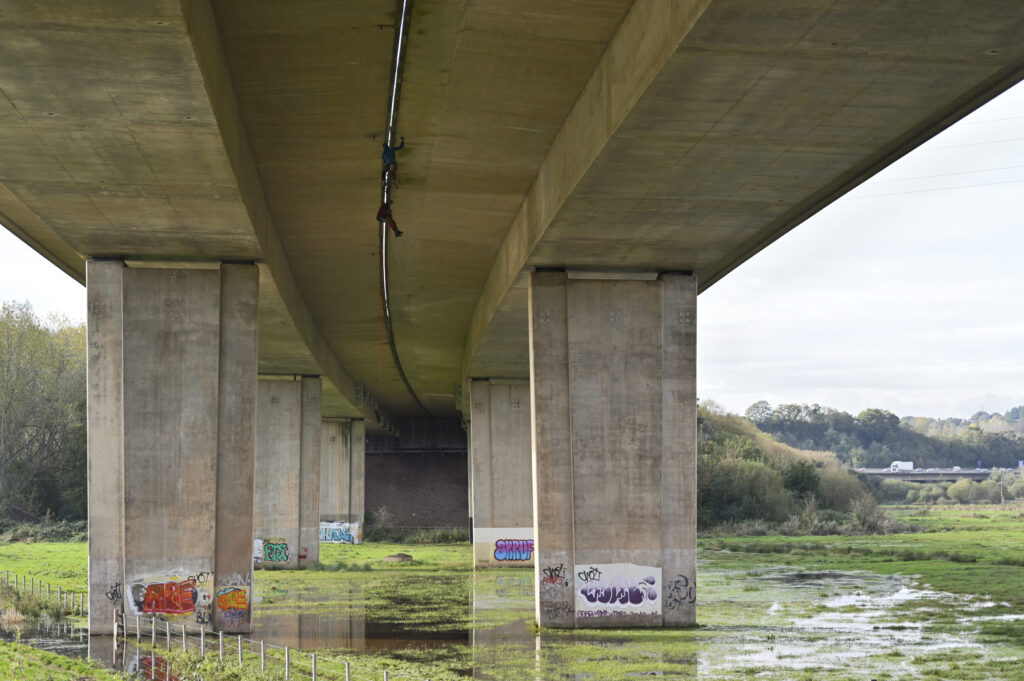
Story • Mark Bullock • Jul 22, 2022
Traffic Jam
How the underside of one of the UK's major roads became the temporary centre of the crack-climbing universe
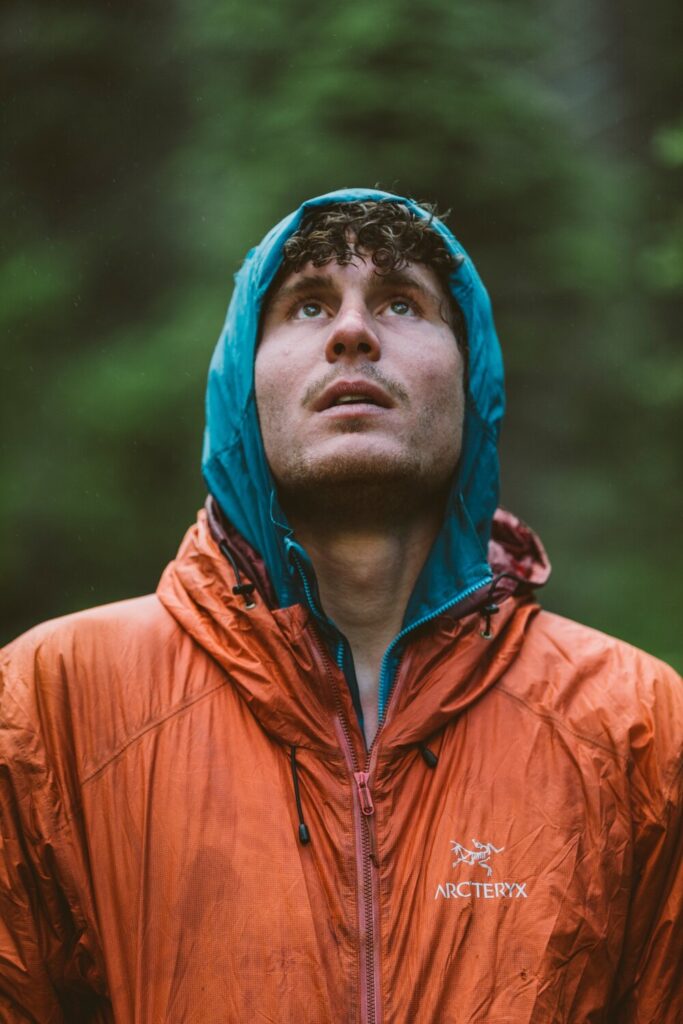
Interview • Mark Bullock • Oct 06, 2021
Interview: The Alpinist
Mark Bullock interviews Peter Mortimer and Nick Rosen of Sender Films / Reel Rock.
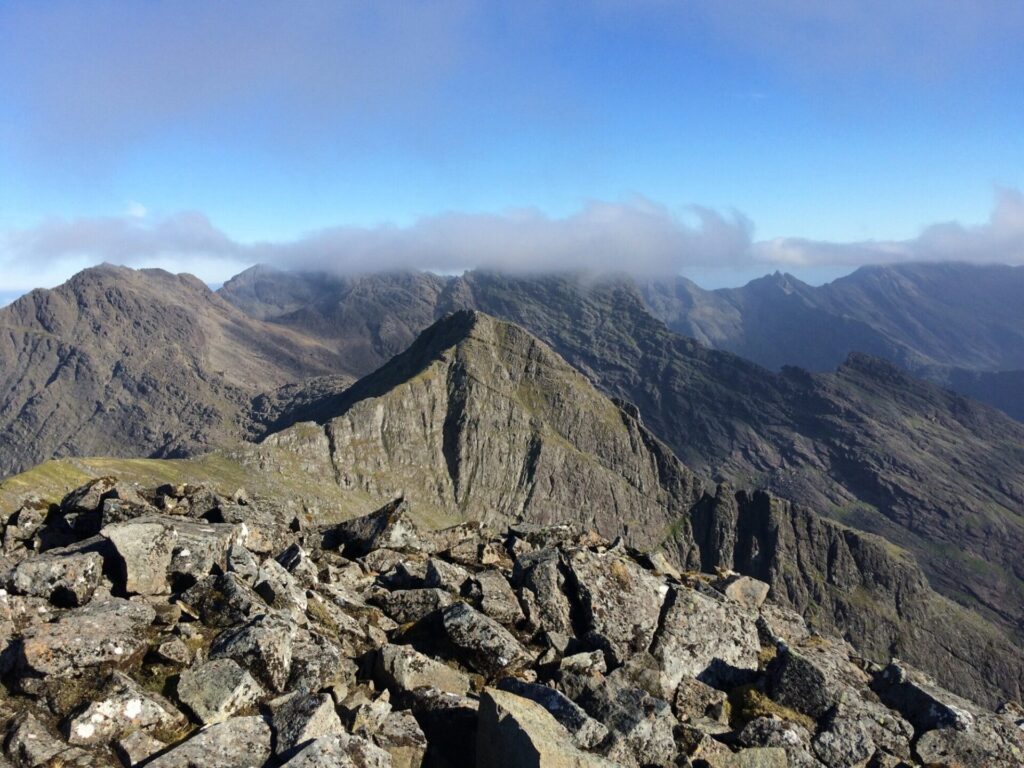
Story • Mark Bullock • Mar 17, 2021
Finding Rapture on The Cuillin Ridge
The timeless gift of digging deep in the mountains.
You might also like
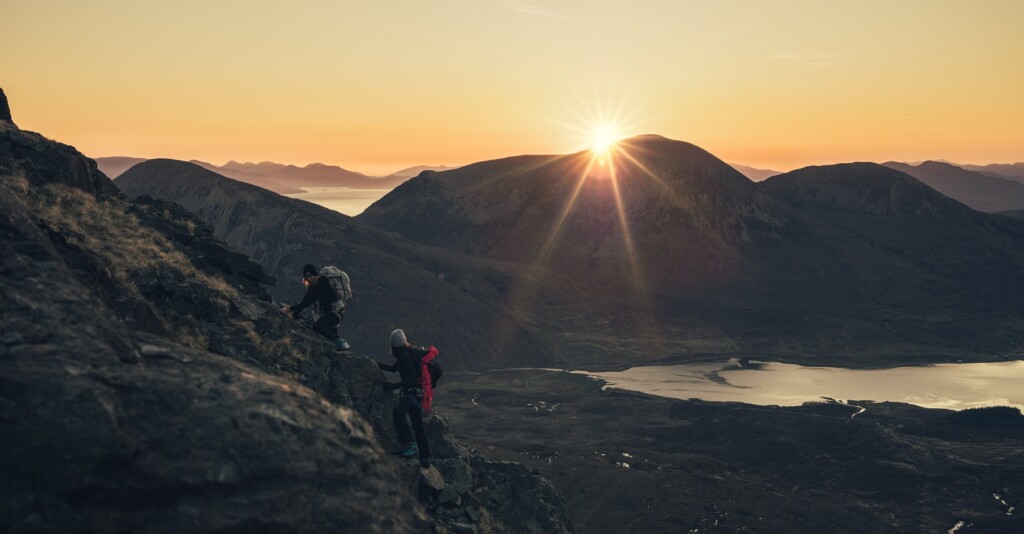
Story • Kieran Creevy • Jun 16, 2023
Scrambling Before Scran on Scotland’s Misty Isle
Sun-drenched ridge lines with expedition chef Kieran Creevy on the Isle of Skye
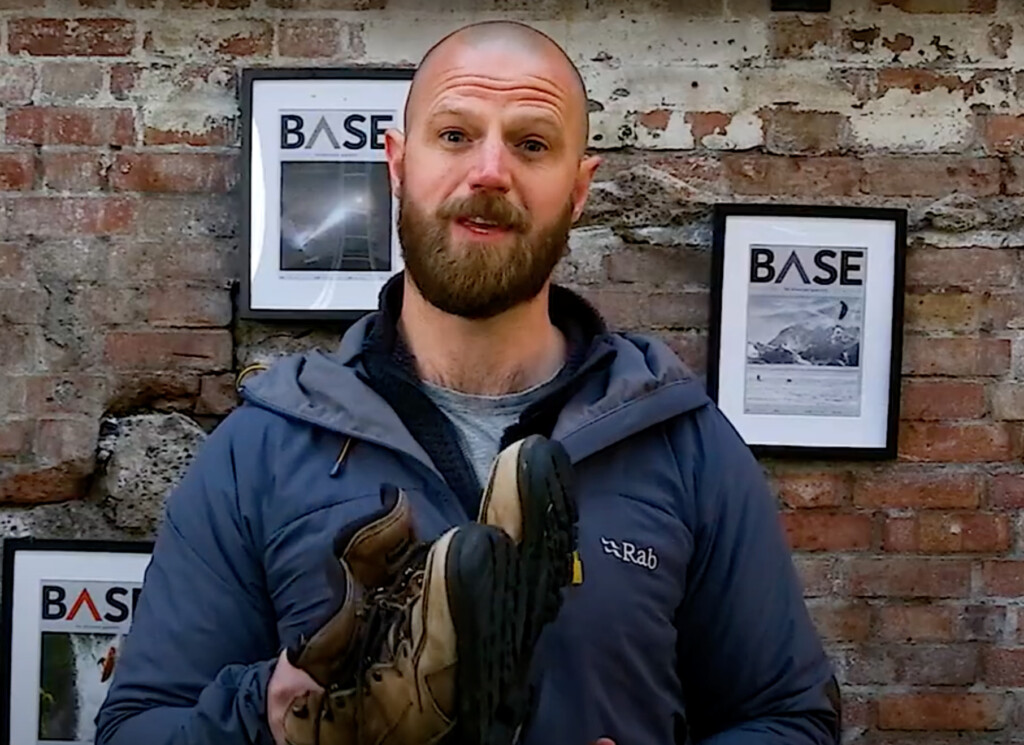
Video • BASE editorial team • Jun 02, 2023
How To Clean And Care For Hiking Boots
Our top five tips to give your hiking boots a 'glow up'
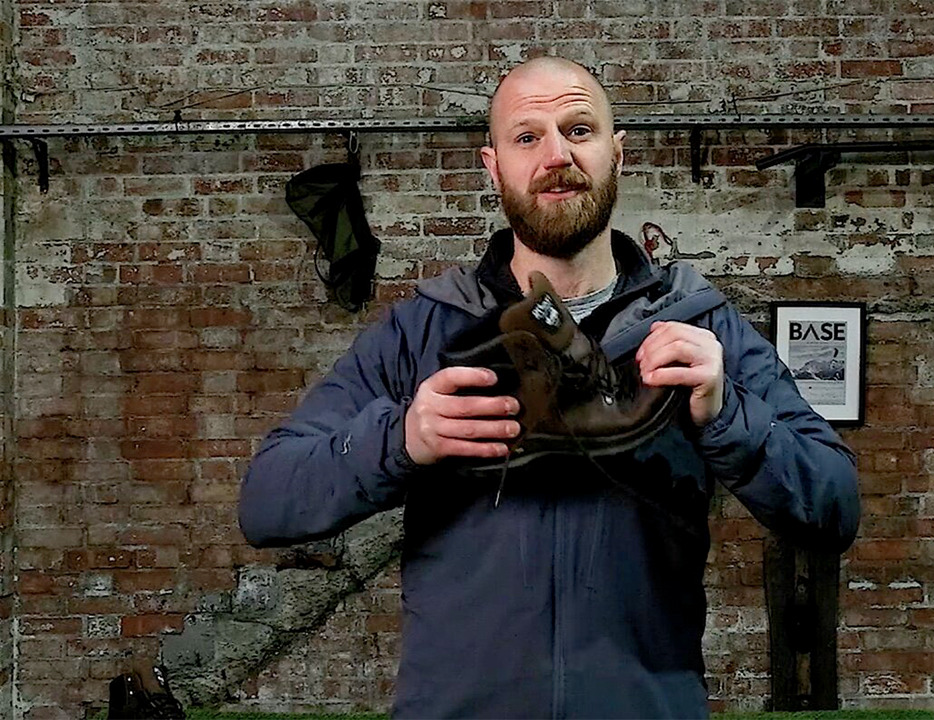
Video • BASE editorial team • Mar 30, 2023
How To Break In Leather Walking Boots
5 fast hacks for breaking in your boots, beating the blisters and reducing the ankle rub
